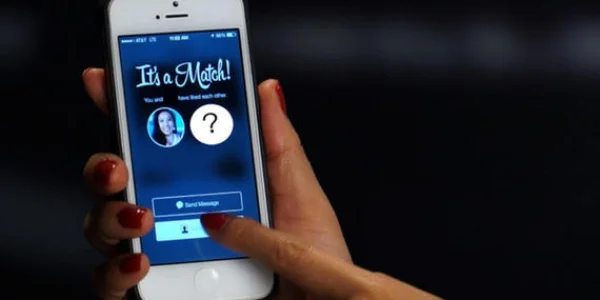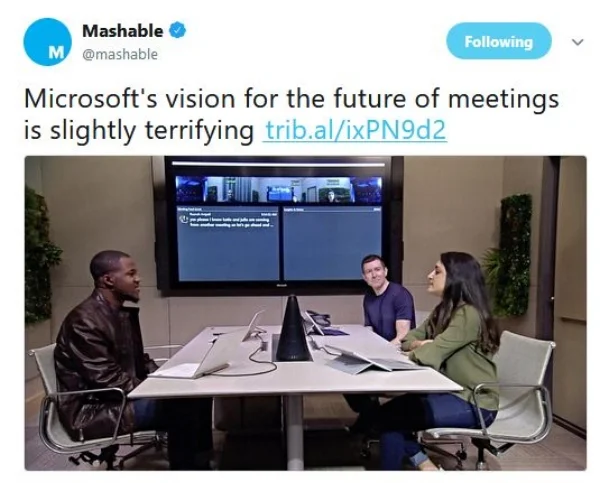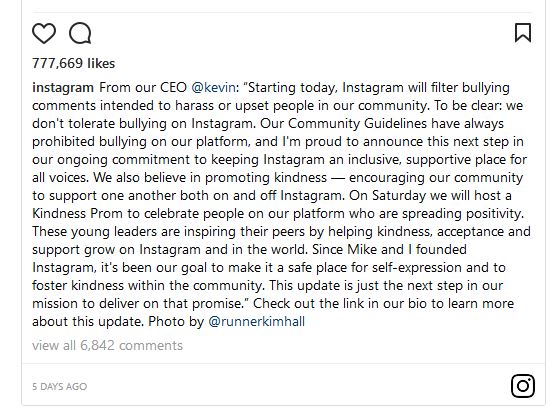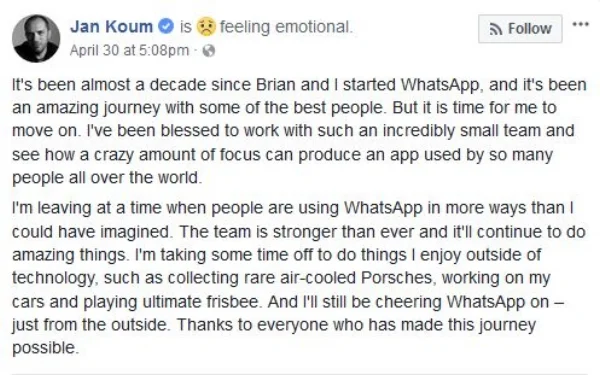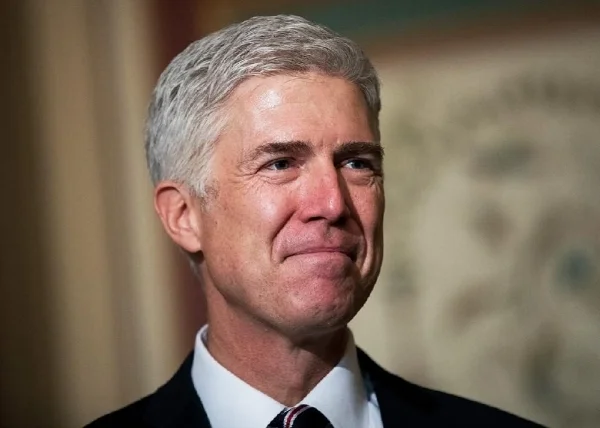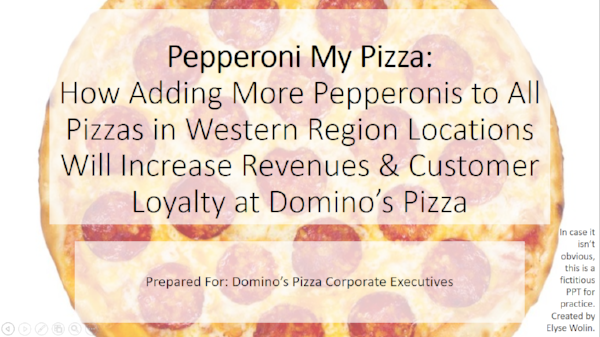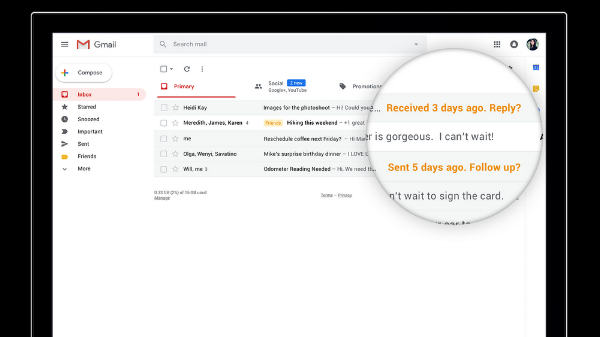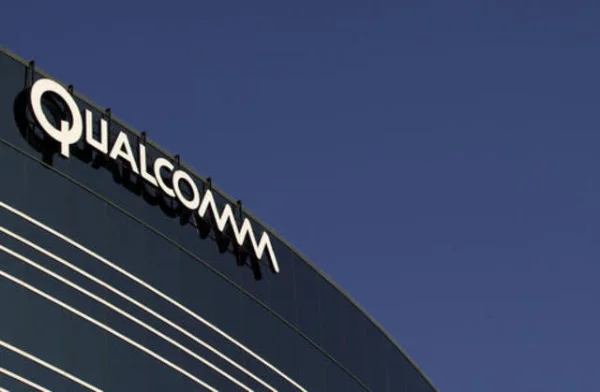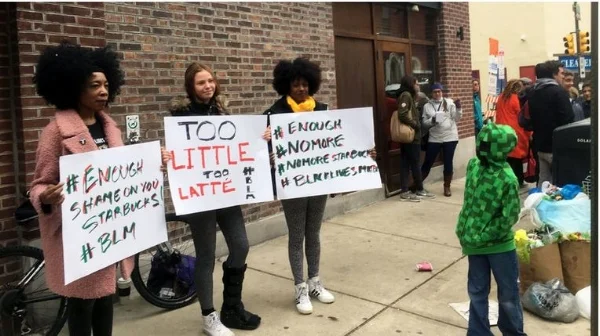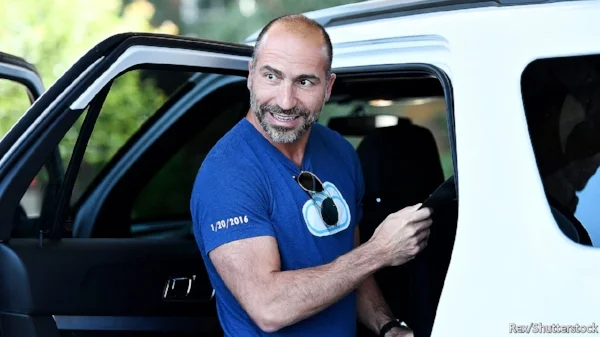Ghostwriting for Dating Ads?
Ghostwriting is moving beyond celebrity biographies to customer service emails, employment negotiations, and posts on dating sites.
Online dating coach Erika Ettin admits, "I write to potential matches. I respond. I delete the inappropriate people.” She'll also rewrite profiles and swipe on her clients' behalf. She defends the practice:
I know sometimes people paint ghostwriting in a negative way. They say it’s disingenuous. But it’s a trend that’s going to continue. People don’t always know what to write and how to put their best foot forward.
A few years ago, actor George Takei was criticized for using a ghost writer. His 4 million Facebook followers were upset when they learned he paid $10 a joke.
Discussion:
- When do you think it's appropriate to hire a ghostwriter, and when does the practice cross a line?
- Ettin mentions the argument that using a ghostwriter is "disingenuous." Do you agree? Why or why not? Is it authentic? What's the difference?
- Would you hire a ghostwriter for dating or for job communications? Why or why not?
MSU's Denial as a Cultural Issue
A Chronicle of Higher Ed article blames Michigan State University's ambitions and culture for their leaders' lack of response to years of sexual abuse on campus. More than 12 people knew of complaints against physician Larry Nassar, but the abuse continued for years.
Lou Anna K. Simon's leadership is questioned in the article. Although clearly a committed leader to the university, Simon is criticized for focusing so much on "two decades of status-climbing" that a culture of denying any wrongdoing evolved. One of the trustees summed up the issue in a letter and emphasized "We must embrace our obligation to apologize and offer justice."
Apologizing may be a sore subject for the trustees because Simon avoided it in the case of Larry Nassar's victims, according to the Chronicle article:
She talked about how “it is virtually impossible to stop a determined sexual predator and pedophile, that they will go to incomprehensible lengths to keep what they do in the shadows.” She often used “regret,” “sympathize,” and “acknowledge” in her written statements, but not “apologize.” She emphasized that sexual assault is a societal problem, not a Michigan State one. She highlighted all of the steps the university had taken to prevent sexual misconduct.
Discussion:
- Analyze the trustee's letter. What principles of business writing are followed? What are the strengths of the letter, and what could be improved?
- The trustee encourages MSU leadership to listen. What does he mean by this, and how would listening help the situation?
- What is the value of apologizing and admitting failure? What are the potential downsides, particularly for a university trying to improve its stature?
- This story illustrates several failings of leadership character. Which can you identify, and which do you think are most relevant here?
The Future of Meetings?
Microsoft's meeting vision shouldn't come as a surprise: voice recognition programs are already making their way into the workplace. But a new device, which captures both facial expressions and voice, picks up everything, even side conversations.
The future of meetings has some people worried about jokes and off-hand remarks that will be forever documented. On the other hand, one benefit may be that people will be more careful about what they say. Will workplace civility improve?
The software has additional benefits. It translates and transcribes, making it easier for international and deaf meeting participants.
Discussion:
- What's your view of this technology: perfect for business, too much, or something else?
- How, if at all, do you think this technology will improve meetings?
- In what online meetings have you participated? What were the benefits and downsides?
- To what extent do you think this technology would help to hold people accountable?
Instagram's New Bully Filter
Instagram has implemented a new technology that will not display comments considered bullying. The program, run by artificial intelligence (AI) technology, can detect “offensive and spammy” comments in English and in at least eight additional languages. Although the filter is set by default, users can "opt out" if they want to see such comments, or they can include specific words to screen out.
In an Instagram post, shown here, and in a longer post titled "Protecting Our Community from Bullying Comments," CEO and Co-Founder Kevin Systrom promised more diligence, particularly to protect young users:
We also believe in promoting kindness — encouraging our community to support one another both on and off Instagram. On Saturday we will host a Kindness Prom to celebrate people in our community who are spreading positivity. These young leaders are inspiring their peers by helping kindness, acceptance and support grow on Instagram and in the world.
Research shows the danger of online bullying: of 2,000 middle schoolers in the study, those who experienced cyberbullying were twice as likely to attempt suicide than those who did not experience cyberbullying.
Discussion:
- Analyze Instagram's announcement of the filter. Who are the audiences, and what are the communication objectives? How well does the message achieve those objectives?
- What's your view of Instagram's response to the problem of cyberbullying? Are the company leaders doing enough, or should they do more?
- How does this news relate to the leadership character dimension vulnerability?
Air France Grapples with Strike and CEO Resigns
Negotiations over pay aren't going well at Air France, and CEO Jean-Marc Janaillac has stepped down as a result. The last straw was a pay increase proposal that failed to win staff support. The company offered 7% increases over five years, but the union is holding out for 5.1% this year.
You may remember the last highly publicized conflict at Air France, in 2015, when employees angrily ripped clothing off two company executives after 3,000 layoffs were announced. Janaillac was appointed in 2016 to resolve the disputes, but they have continued, and investors have expressed their frustration: the stock is down 40% this year.
Air France says rising fuel prices and a strong euro will make the strikes more challenging for the airline, which managed to keep long-haul flights on schedule but cancelled about 20% of medium-haul and some short-haul flights because of staffing shortages.
In his resignation speech, Janaillac was emotional, clearly disappointed in the outcome. Unfortunately, his decision to step down didn't inspire investors, who responded by bringing the share price down another 14%.
French Prime Minister Bruno Le Maire refuses to bail out the company:
“If it doesn’t make the necessary efforts to be at the same competitive level of Lufthansa and other major airlines, it will disappear. I am not taking the money of the French and putting it in a company that isn’t at the required competitive level.”
Image source (cover).
Image source (above).
Discussion:
- How can the airline manage through the current crisis? What type of communication could be helpful at this point?
- Janaillac put his job on the line with the latest pay proposal. Did he do the right thing by resigning? Why or why not?
- Which leadership character dimensions are at play in this situation?
Tesla's Contentious Conference Call
Called "the most unusual call...in 20 years," "bizarre"—and "the best call I've heard in a long time," Tesla's earnings call is a popular news item. On balance, as one analyst said, “Needless to say, the call didn’t go well," and the evidence is in the stock price, which dropped 7.9% (5% within 20 minutes).
Here are a two highlights of CEO Elon Musk's responses to questions:
Sanford Bernstein's Toni Sacconaghi: "And so where specifically will you be in terms of capital requirements?"
Musk: "Excuse me. Next. Boring, bonehead questions are not cool. Next?"
RBC's Joseph Spak: "The first question is related to the Model 3 reservations, and I was just wondering if you gave us a gauge as maybe some of the impact that the news has had. Like, of the reservations that actually opened and made available to configure, can you let us know, like, what percentage have actually taken the step to configure?
Musk: "We're going to go to YouTube. Sorry. These questions are so dry. They're killing me."
At one point, Musk, frustrated by a question, said, "Please sell our stock and don't buy it." Candor is one thing, but I'm not sure a CEO wants to alienate investors.
CNBC host Jim Cramer is one of the opposing voices, who complimented Musk on his directness and telling the truth. He said that many CEOs are thinking what Musk said out loud. At the same time, Cramer acknowledged that this might be Musk's last call.
Discussion:
- What's your view of Musk's responses during the call? What factors into your assessment?
- Watch Cramer's analysis. To what extent do you agree with his assessment?
- What are the risks of Musk's approach (in addition to the short-term stock price drop), and what are the potential rewards?
- Some might say Musk is being authentic. How do you see it?
WhatsApp Co-Founder Leaves Over Data Controversy
Founder and CEO of WhatsApp Jan Koum will leave because of clashes with Facebook, which acquired the start-up in 2014. Koum confirmed the decision in a Facebook post.
Koum follows another WhatsApp executive, Brian Acton, who left last year after publicly criticizing Facebook's decision to put ads on WhatsApp. Acton's public comments have continued; in March, when Facebook was in the news for the Cambridge Analytic controversy, he posted, "It is time. #deletefacebook."
Privacy was also paramount to Koum, who said WhatsApp was designed "around the goal of knowing as little about you as possible." We can see how this stance would conflict with Facebook's ad strategy, which targets users based on many known characteristics.
Mark Zuckerberg has been gracious about Koum's departure, at least publicly. He responded to Koum's post on Facebook:
Jan: I will miss working so closely with you. I'm grateful for everything you've done to help connect the world, and for everything you've taught me, including about encryption and its ability to take power from centralized systems and put it back in people's hands. Those values will always be at the heart of WhatsApp.
Discussion:
- Describe the culture clash between Facebook and WhatsApp. What do you think went wrong during the acquisition process?
- Assess Koum's and Zuckerberg's posts. How well do they represent their companies and themselves?
- What's your view of Acton's open criticism of Facebook: disloyal, hurtful, authentic, courageous, or something else?
Supreme Court Justice's Writing Style
Supreme Court Justice Neil Gorsuch is getting so much attention for his writing that #GorsuchStyle is trending. Lauded before he joined the court, Gorsuch's writing is now criticized as a sidetrack "history lesson," "garbled," and "exhausting to read." Critics cite examples and wonder why a justice is spending time on alliteration:
“Disruptive dinnertime calls, downright deceit and more besides drew Congress’s eye to the debt collection industry.”
Another hallmark of his new style is making a pithy comment and then explaining its meaning as in this example:
"Chesterton reminds us not to clear away a fence just because we cannot see its point. Even if a fence doesn’t seem to have a reason, sometimes all that means is we need to look more carefully for the reason it was built in the first place."
A Yale student analyzed Gorsuch's court decisions. Compared to others' writing, he used more contractions (3.9 per 1,000 words compared to 0.8) and started sentences with words such as “and,” “but” and “so” more often (4.9 times out of every 1,000 words compared to 1.5). Analysts seem to agree that his style is getting less formal, but he also likes to draw attention to himself.
Discussion:
- What is the value of alliteration and other rhetorical devices? When are they best used, and when are they best avoided?
- Gorsuch's seeming desire to call attention to himself contradicts business writing and leadership character principles. Which ones?
- Why might Gorsuch's style change over time?
- What distinguishes your writing style? Can you identify a sentence structure, phrase, or structure that you use often—and maybe too often?
- Slate writer Mark Joseph Stern analyzed another passage and identified several examples of "fat." Try to improve conciseness in this paragraph. How many extraneous words can you omit?
The Court today clears away a fence that once marked a basic boundary between federal and state power. Maybe it wasn’t the most vital fence and maybe we’ve just simply forgotten why this particular fence was built in the first place. But maybe, too, we’ve forgotten because we’ve wandered so far from the idea of a federal government of limited and enumerated powers that we’ve begun to lose sight of what it looked like in the first place.
MSNBC Correspondent Responds to Criticism
MSNBC Correspondent Joy Reid is trying to explain homophobic posts on her blog, which has been inactive for years:
"I genuinely do not believe I wrote those hateful things ... But I can definitely understand, based on things I have tweeted and have written in the past, why some people don't believe me."
Reid hired a security analyst to prove that her site had been hacked, saying that the breach was "part of an effort to taint my character with false information by distorting a blog that ended a decade ago.” But the investigation didn't uncover evidence. The hacking defense typically doesn't turn out well. Remember Amy's Baking Company in 2013?
On her show, "AM Joy," Reid apologized for past comments:
“I have not been exempt from being dumb or cruel or hurtful to the very people I want to advocate for. I own that. I did it. And for that I am truly, truly sorry.”
A Mediaite story details Reid's previous posts:
“I look back today at some of the ways I’ve talked casually about people and gender identity and sexual orientation and I wonder who that even was. But the reality is that like a lot of people in this country, that person was me.”
A Vox article acknowledges that people's views, particularly of same-sex marriage, have changed. In the end, Reid spoke about her personal development:
“The person I am now is not the person I was then. I like to think I’ve gotten better as a person over time — that I’m still growing, that I’m not the same person I was 10 or five or even one year ago. And I know that my goal is to try to be a better person and a better ally.”
Discussion:
- How could Reid have addressed the issue without the hacking defense?
- Watch Reid's video apology. How well does she handle the situation?
- People do change. Do you find Reid's comments sincere and believable? Why or why not?
Narrative Alternatives to PPT at Amazon and Google
In his annual letter, Amazon CEO Jeff Bezos wrote that he has banned PPT:
"We don’t do PowerPoint (or any other slide-oriented) presentations at Amazon. Instead, we write narratively structured six-page memos. We silently read one at the beginning of each meeting in a kind of 'study hall.'"
Nancy Duarte describes the value of a narrative or storytelling approach: "storytelling in presentations is a powerful way to grab attention, hold attention, and to change beliefs." She gives examples from our favorite books and movies, which build suspense over time. Stories are also a good way to inspire empathy and other emotional reactions. This is difficult to achieve with traditional PowerPoint bullets.
A Harvard Business Review article, "Structure Your Presentation Like a Story," provides more guidance and summarizes the approach with a graphic:
For Bezos, the narrative style means that points are connected and organized in a logical sequence with some resolution, conclusion, or outcome. GeekWire created this six-page memo in Amazon's style as an example.
At Google, CEO Sundar Pichai also emphasizes storytelling with pictures:
"Since stories are best told with pictures, bullet points and text-heavy slides are increasingly avoided at Google."
Both executives are warning against the type of communication that is overly concise and missing context, connections, and cohesiveness. A ZDNet article summarizes some of the issues with PowerPoint and describes the now-infamous role of PPT in a U.S. disaster:
"'[B]ulletized' thinking contributed to the Challenger disaster, where 7 crew members died and a multi-billion dollar craft destroyed due to an O-ring failure. The big problem was that NASA management wasn't really listening to the engineers—and breaking issues up into bullets helped them do that."
Pichai's design approach aligns with PPT trends over the past few years. We're seeing much less text, fewer bullets, and more images, and this style follows the evolution of web design. On websites, we see many more background videos and photos and not much text, particularly on consumer websites.
Discussion:
- What are the advantages and downsides to the narrative memo? For what types of situations do you think this approach would work well? For what situations might PPT be a better choice?
- For practice, try to convert this terrible PPT presentation to one with less text and more meaningful images. Clean up the design, add charts to help your audience visualize data, and of course, correct the grammar.
Chipotle CEO Generates Excitement
After a dismal three years of food-safety issues, Chipotle saw a strong first quarter, and CEO Brian Niccol is confident about the company's future. Since the outbreaks, part of Chipotle's turnaround plan was to introduce new menu items, but they did not prove successful.
In an interview, Niccol described new plans, which may include drive-thrus, longer hours, mobile ordering, or menu items that are more thoroughly tested. But Niccol resists offering deals and breakfast, despite what Bill Ackman, Chipotle's largest shareholder, advises:
“I’ve been very clear with him: Not now, Bill and I have had a couple of really good conversations. He may have some ideas that I don’t think are the right ones now.”
Here's the earnings call webcast. In the press release, Niccol further explained the company's plans:
"While the company made notable progress during the quarter, I firmly believe we can accelerate that progress in the future. We are in the process of forming a path to greater performance in sales, transactions, margins and new restaurants. This path to performance will be grounded in a strategy of executing the fundamentals while introducing consumer-meaningful innovation across the business. It will also require a structure and organization built for creativity, action and accountability. Finally, Chipotle will have a culture that is centered on running great restaurants, putting the customer first, innovating for today and tomorrow, supporting each other, and delivering on commitments. The future will be meaningful at Chipotle."
(Disclosure: I own a modest amount of Chipotle stock.) Image source.
Discussion:
- Assess the earnings call or press release. What business jargon do you identify? Is it too much, or is it appropriate for the situation and audience?
- Niccol is challenging Ackman's ideas, which is risky for a new CEO. How do you interpret his statement? Again, is what he says appropriate for the situation, or should he present his views differently?
- Would you say that Niccol is demonstrating courage in his statement about Ackman? Why or why not?
Tips for Navigating the New Gmail
Will the new Gmail make email easier? I'm not so sure. In this WSJ video, David Pierce describes the new design as "busier," particularly if you have special folders. A new bar on the right side indicates, next to your list of email, your calendar and list of tasks, which is useful for an "at-a-glance" view.
Pierce suggests collapsing the left side bar and shrinking other parts down. He's a fan of the "confidential note," which will automatically delete messages after a period of time. You can also unsend a message now at any time, which is also a good addition.
Other features include snoozing a message and setting high priority notifications on your phone.
Some of these features seem helpful, but overall, I'm skeptical about whether they will make us more efficient. This is the first major upgrade since 2011, and if you don't want the new features, you can revert back to the old version.
Discussion:
- Identify a few features of your email program that you believe improve your efficiency. How do you use these?
- If you use Gmail, how do you assess these new features? Which do you find most and least useful?
MTA Criticized for Lack of Transparency
Commissioners at the New York Metropolitan Transportation Authority (MTA) questioned increasing costs and whether the agency has been transparent. Of particular concern are additional costs of about $1 billion and cost overruns for a project that resulted in 19 instead of 32 subway stations getting renovated. One commissioner said, “It is indefensible that we did not receive this information prior to it being reported in the press." The governing body discovered the information from a Wall Street Journal article.
Chairman Joe Lhota, who was appointed last summer, acknowledged that the agency has been working on being more transparent:
“Not a second in a day goes by when I don’t think about transparency at this agency and what we need to do to provide information to all of you."
NY Mayor Bill de Blasio and New York City Council Speaker Corey Johnson requested more transparency about spending and service improvement measurements and asked for monthly briefings and an "evaluation of efficacy."
Discussion:
- How would you define transparency, and how does it relate to accountability?
- After reading more about the situation, how would you assess the agency's actions? Do you agree with the commissioners' assessment? If you believe a lack of transparency exists, do you think it's intentional? Does it matter if it is?
- Why do organizations lack transparency? What do they potentially gain and lose?
- What do you think an "evaluation of efficacy" means?
Behind the Scenes at Southwest's Crisis Response
A Wall Street Journal article describes the Southwest Airlines management team's quick response during the recent engine blowout that killed a passenger. The article describes a group of executives meeting and hearing their phones alert them to a plane in trouble.
CEO Gary Kelly said, "Everybody has a checklist" and “The protocol is well understood. It’s just to affirm that this is how we are going to work together. We are here to support the NTSB (National Transportation Safety Board)." Early steps included flying employees to the Jennifer Riordan's home to help the family manage travel arrangements and stopping all advertising on social media.
Airline employees also arranged for hotels or flights for other passengers and, for those staying in a hotel, left notes under their doors offering more assistance. Based on previous compensation to passengers in similar situations, the airline gave each traveler $5,000 an a $1000 travel voucher.
Discussion:
- Read the article and identify all of the positive steps the airline took.
- Reactions are consistently positive about the airline's response. What's your view? What were the strengths of their response and what, if anything, could the airline have done differently?
- What do you think will be the long-term impacts of this incident on the brand?
- To what extent do you think compassion played a role in how Southwest is perceived?
More About the Starbucks Bias Situation
After the arrest of two black men in a Philadelphia store, Starbucks announced that 8,000 stores will close on May 29 for racial-bias training. But are some skeptical about the impact that one day of training will have, and the company seems to be imitating Chipotle's decision to close stores for food safety training. On the other hand, the company could have blamed the employee who called the police, a crisis communication strategy we have seem in many other situations.
An article in the New York Times describes racial bias research in hospitality customer service and may tell us more about the incident in Philadelphia. In one study, researchers sent emails to hotels using different names that reflected gender and race, asking for restaurant recommendations. Responses indicated racial bias, as the authors describe: "Hotel employees were significantly more likely to respond to inquiries from people who had typically white names than from those who had typically black and Asian names."
In addition, researchers analyzed "politeness," for example, whether employees wrote "best" or "sincerely" before signing their name. They were more likely to use such words when responding to guests with names that sounded white, and the authors describe another finding for this group:
They were three times as likely to provide extra information — even when the initial inquiry was just about restaurants — to white than to black or Asian people.
In addition to training, the authors suggest periodic customer service audits and consistent scripts and policies.
In a turn, Philadelphia Police Commissioner Richard Ross has apologized to the two men who were arrested. In his original video, Ross defended the officers actions and said, based on a sergeant's experience at Starbucks, "they are at least consistent in their policy." But in the news conference, Ross says, "shame on me" and "I have to do better."
Discussion:
- What's your view of the research about customer service at hotels? What does the research potentially say about the situation at Starbucks?
- Have you experienced bias in a customer service setting? What was the situation, and how did you handle it?
- How well does Ross handle the apology in the news conference? How does his identity factor into his response? How does he demonstrate authenticity, vulnerability, and other leadership character dimensions?
Layoffs at Qualcomm
A Business Insider headline puts the news and purpose right up front:
Qualcomm is reportedly laying off as many as 1,000 employees as part of a $1 billion cost savings plan
The decision comes after a hostile takeover bid from Broadcom, a competitor in Singapore. Qualcomm made a commitment to save costs to its shareholders and appears to be following through, despite that the failing takeover bid.
A Bloomberg report reminds us that the company cut jobs in 2015, as well, in response to an activist investor's interests. A New York Times article calls Qualcomm "collateral damage" in "a looming trade war between the United States and China" that may impinge the company's growth.
The company declined to comment on news stories, and nothing related to layoffs is posted on its website.
Discussion:
- Should Qualcomm executives be more forthright about the change? What, if anything, should they communicate to the public and how?
- How do you assess the admission that the layoffs are intended to ward off hostile takeovers and reduce costs? How do you think these reasons would be received by shareholders? the press? customers? employees?
- How are the news and the company's communication an issue of integrity for Qualcomm?
Passenger Dies on Southwest Flight
An engine exploded on a Southwest flight, which blew out a window and killed a passenger. The company has communicated about the tragedy consistently and in several forms.
On its website, Southwest posted several updates regarding the situation, starting with the initial event and ending with more information.
The second statement has the most detailed information and confirms the passenger's death:
Southwest Airlines Co. (NYSE: LUV) confirms an accident involving Southwest Airlines Flight 1380. The flight made an emergency diversion to Philadelphia International Airport (PHL) earlier today after the Crew reported issues with the number one engine which resulted in damage to the fuselage.
We are deeply saddened to confirm that there is one fatality resulting from this accident. The entire Southwest Airlines Family is devastated and extends its deepest, heartfelt sympathy to the Customers, employees, family members and loved ones affected by this tragic event. We have activated our emergency response team and are deploying every resource to support those affected by this tragedy. For a message from Gary Kelly, Southwest Chairman and Chief Executive Officer, please click here.
The aircraft involved today was a Boeing 737-700 (N772SW) and was enroute from New York LaGuardia (LGA) to Dallas Love Field (DAL). In total, the flight had 144 Customers and five Southwest Crewmembers onboard. We extend our heartfelt appreciation to the Southwest Pilots and Flight Attendants who acted professionally and swiftly to take care of our Customers during the emergency diversion and landing.
Finally, Southwest Airlines officials are in direct contact with the National Transportation Safety Board (NTSB) and the Federal Aviation Administration (FAA) to support an immediate, coordinated response to this accident. Southwest is in the process of gathering additional information regarding flight 1380 and will fully cooperate in an investigative process.
Please join the Southwest Family in keeping all of those affected by today's tragedy in your thoughts.
CEO Gary Kelly conveyed his sympathy in a video posted on the Twitter and during a news conference. Both are obviously scripted, but perhaps this is appropriate given the timing and severity of the situation.
Discussion:
- Assess Southwest's communications overall. What is they company doing well, and what could be improved?
- Now assess the news conference video, which is similar to the video message posted on Twitter. What delivery skills does the CEO demonstrate? What could be improved? Should he use a more natural style and "speak from the heart"? What are the potential downsides of this approach?
- How well does the company demonstrate compassion?
Starbucks Apologizes, Again
Two black men were arrested at a Philadelphia Starbucks. Witnesses say they were just waiting for a friend and asked to use the restroom. The reason for calling the police seemed to be the same: that they were just waiting for friend. But because they didn't order anything, they were asked to leave and did not. Other customers say this is common at Starbucks, and the only reason the police were called was because the two men were black.
The company, at first, gave a weak apology using unclear pronoun references (see "this" and "these"). A longer apology came from the CEO Kevin Johnson later. In the statement, he identified steps the company would take and closed with this paragraph:
Finally, to our partners who proudly wear the green apron and to customers who come to us for a sense of community every day: You can and should expect more from us. We will learn from this and be better.
Johnson also posted an apology video.
In a video statement, Philadelphia Police Commissioner Richard Ross explained the situation from his point of view and defended the officers' actions. He also said that all officers get implicit bias training and gave an example of a police sergeant who was also denied access to a Starbucks bathroom. Ross's conclusion was that "they are at least consistent in their policy." Of course, not everyone agrees.
Discussion:
- Analyze Johnson's statement. Who are his primary and secondary audiences? What are his communication objectives, and how well did he achieve them?
- What organizational strategy does Johnson's statement illustrate? How do you assess his tone and writing style?
- What is an unclear pronoun reference, and how are they used in the first apology?
- What's your view of the situation? Did Starbucks do wrong? If so, at what point(s)? Are you boycotting Starbucks, as some promote, as a result?
- Which leadership character dimensions are illustrated by this example?
"Nut Rage": The Sequel
You may remember the so-called "nut rage" incident at Korean Airlines in 2015, when a company executive became enraged about how macadamia nuts were served on a flight. Cho Hyun-ah, a daughter of the company chairman, threw a document at the head flight attendant, forced him to kneel and apologize, and ordered the plane back to the gate so the flight attendant could be removed. Cho didn't know that the rules had changed: nuts were served in the bag instead of on a plate, as she expected, because of nut allergies. In February of this year, a Washington Post article details how the flight attendant has suffered since the incident.
At the same, people were incensed by what they considered entitlement of the chaebol families, who run Korea's powerful conglomerates. Some believe they act as if they are "above the law," and this situation was symbolic of that criticism.
This week, Cho's younger sister, Hyun-min, is criticized for losing her temper during a marketing department meeting. Some say she threw water at an employee's face, but the airline reports that she threw it on the floor.
Either way, unlike her sister, Hyun-min immediately apologized via text message to the employee and on her personal Facebook page: “I apologize with my head down for my foolish and reckless behavior."
Discussion:
- How else should the company respond to this incident? What should executives have learned from the 2015 situation?
- How could you relate this incident to communication and character issues such as civility in the workplace, conflict management, and humility?
Uber CEO Compares Self-Driving Cars to Student Drivers
In defense of autonomous cars, Uber CEO Dara Khosrowshahi said, "Ultimately, self-driving cars will be safer than humans. But right now self-driving cars are learning. They’re student drivers.” On NBC's Today Show, Khosrowshahi confirmed that the company will continue its self-driving program despite a fatal crash last month in Arizona.
In the interview, when asked about Facebook and other technology companies facing privacy and safety issues, Khosrowshahi said he considers, "the challenges of technology getting into everyday life and the responsibilities that come with it." He repeated "responsibility" twice more within about the first minute of the interview. Like Mark Zuckerberg during the recent hearings on Capitol Hill, he said, "I welcome regulation," and "we're partnering with regulators."
Also as Zuckerberg clarified with lawmakers, Khosrowshahi said they don't sell data; however, he also said they don't "monetize data," which Facebook cannot say with its business model to sell ads.
Discussion:
- What principles of persuasion does Khosrowshahi demonstrate in this interview? Consider logical argument, emotional appeal, and credibility.
- What principles of leadership character does he demonstrate?
- What do you consider the strengths of this interview? What could Khosrowshahi improve?

